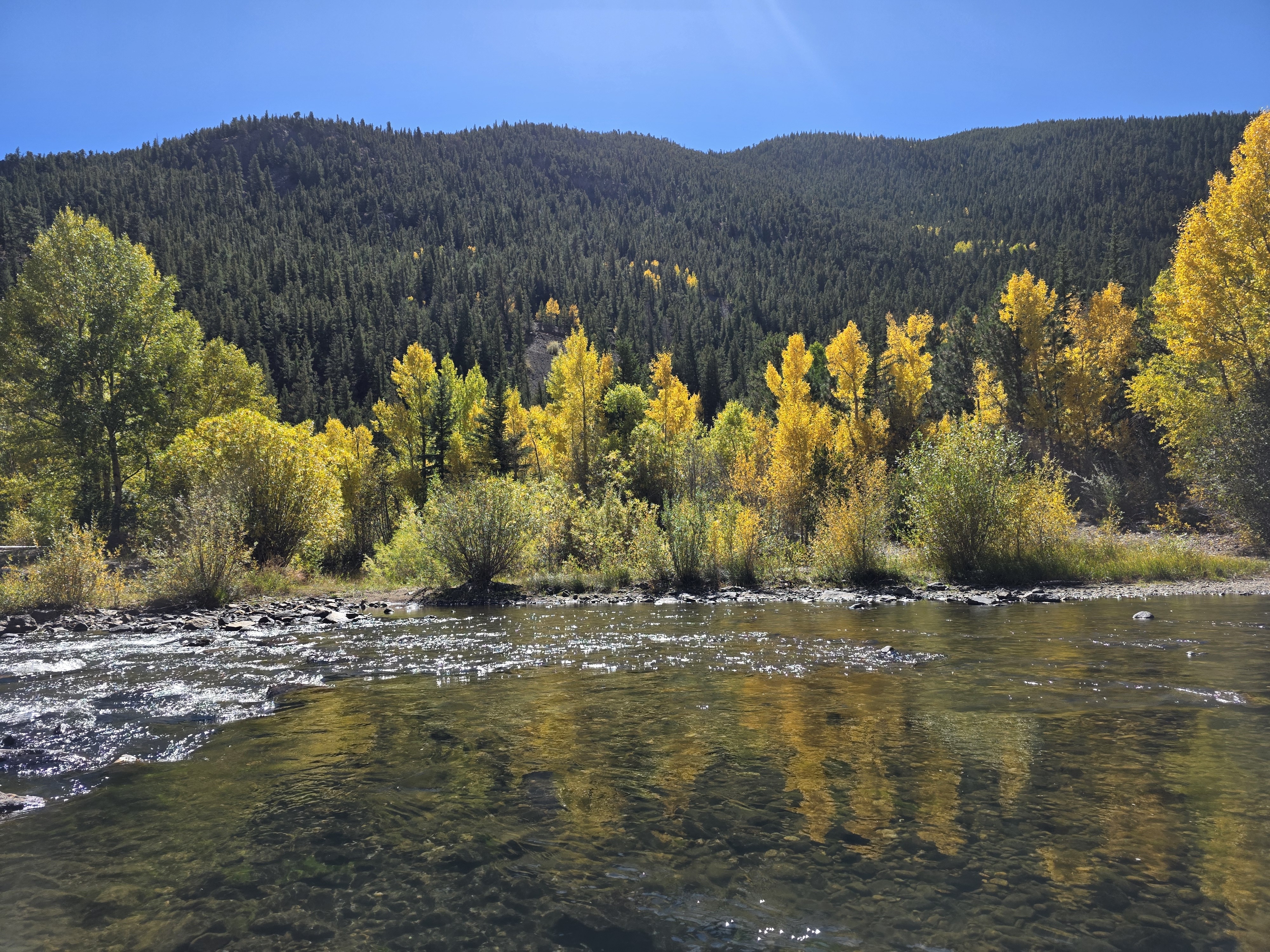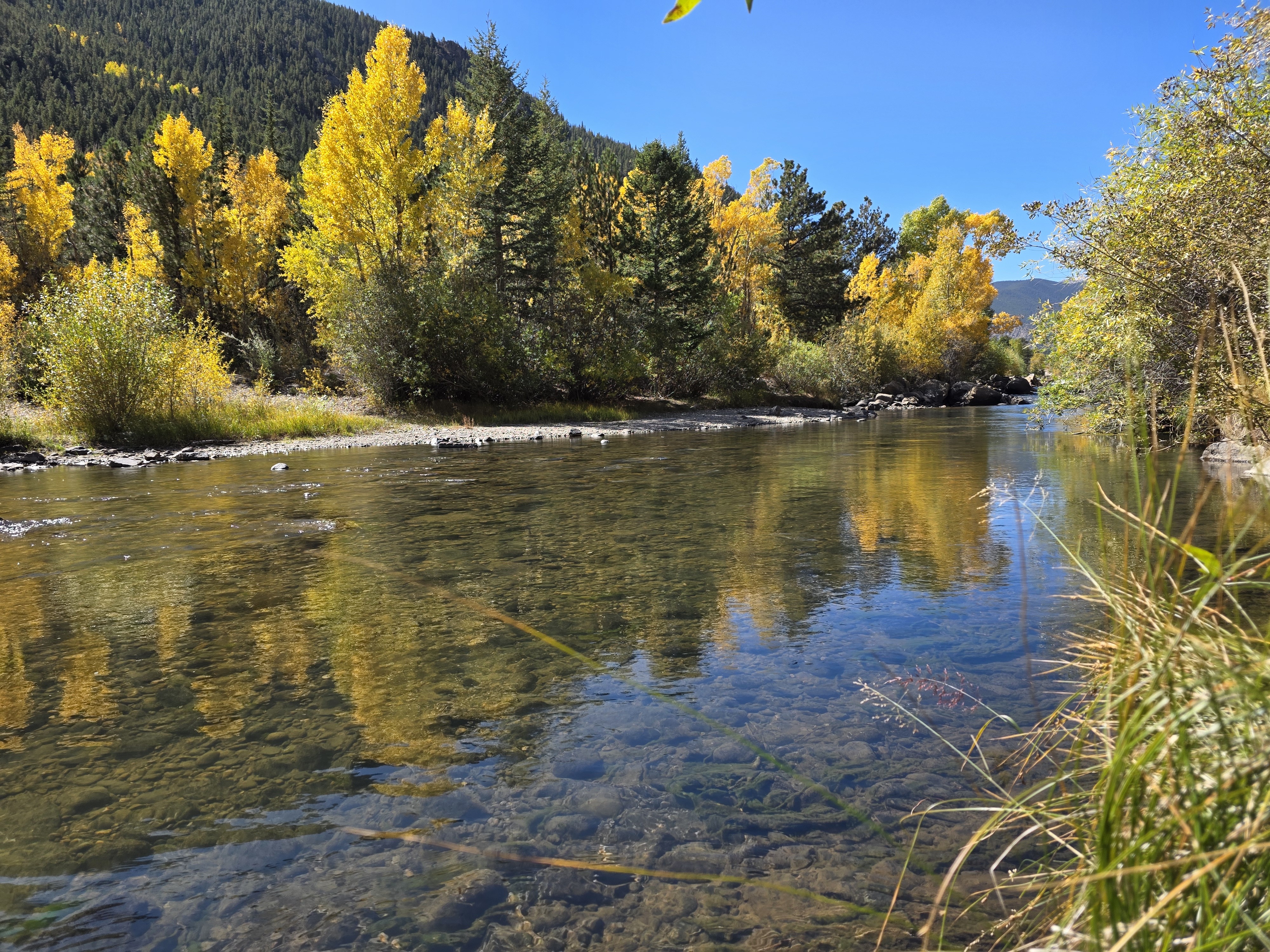Sunlight flickers off fast water, spray hangs in the air, and the sound is loud enough to drown your thoughts.
Pocket water doesn’t give you time to think, which is precisely why guides love it. It’s not luck, it’s geometry in motion.
“Pocket water is a math problem disguised as chaos. Solve it and every other river gets easier.”
What Makes Pocket Water Work
Every boulder is a current breaker. Water splits, slows, curls, and reforms. Trout use those changes in velocity like shelter — they burn less energy and watch food funnel by.
On streams like Boulder Creek or Clear Creek, every rock is a micro-ecosystem with one clear advantage: limited real estate means predictable holding water.
Quick Take: The sofSeamam behind a rock is a conveyor belt, not a couch. Fish it like the food moves — short, accurate, deliberate.
How to Spot Feeding Lanes
Look for transitions, not turbulence.
- The Cushion: that calm bubble just upstream of a rock, one trout’s favorite hiding spot.
- ThSeamam: where fast meets slow oxygen, food, and safety all in one narrow line.
- The Tailout: the exit ramp from each pocket, the ambush zone for aggressive feeders.
Pro Tip: Drop your fly into the cushion, not behind it. Most anglers cast too far.
The Hydraulics of a Drift
Think of your fly as a leaf in moving water. It doesn’t just travel downstream; it rides lift, drag, and microcurrents.
That’s why short drifts with controlled slack outfish long casts every time. Pocket water requires constant contact, not constant casting.
Gear Note: A short 8’6” 3-weight, long leader, and a single tungsten nymph — it’s not fancy, it’s effective.
The Mistakes That Blow Up a Pocket
- Wading too early, every step ripples through four holding lanes.
- Casting across three seams instead of into one.
- Overweighting your fly sticks, your drift dies, and the fish see it.
Pro’s Note: Fish the neaSeamam first. It’s where the least experienced anglers never look.
Pocket Water Rewards Rhythm
When it clicks, it feels like music — cast, mend, drift, lift. You start reading the breaks like a guide: one cast per pocket, one shot per fish.
The creek becomes predictable, the chaos turns to pattern, and your confidence goes through the roof.
Why It Matters
Pocket water is where anglers stop flailing and start learning. It teaches precision, speed, and the ability to read water by instinct. And when you move back to big rivers, you’ll fish less water but catch more trout.
Because the truth is simple: guides don’t guess. They read.
.png?width=300&height=100&name=Copy%20of%20Rise%20Beyond%20Logo%2012.31.24%20(300%20x%20100%20px).png)
.png)



.png)